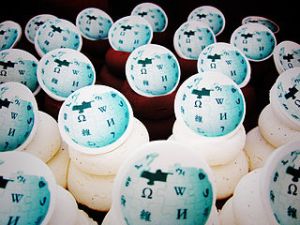Tuesday, October 16th marked the fourth annual Ada Lovelace Day (ALD), a celebration of women in science, technology, engineering, and mathematics (STEM). To honor the occasion, I decided to organize a Wikipedia edit-a-thon at Harvard University in Cambridge, Massachusetts. The event served two purposes: to highlight the contributions of the many important women who are underrepresented – or not represented at all – on the pages of Wikipedia, and to encourage women in particular to help in the important task of editing the world’s most popular online encyclopedia.

The idea to hold an edit-a-thon for ALD came to me after I had heard that similar events would be held in the UK, India, and Sweden the week of October 15th. I had been an ALD participant the past three years, but I really wanted to do something more this year to help encourage an attitude similar to the “Earth Day every day” motto that was popular in the United States. I hoped to empower volunteers to contribute more regularly to the history of women in STEM, not just on the occasion of Ada Lovelace Day.
As someone who is working on a book about women in the STEM fields, it has become very obvious during the course of my research that many significant women are missing from the pages of Wikipedia. It is also often the case that entries for important female scholars are either not very detailed or missing from major Wikipedia lists. I was also frustrated to learn of the gender disparity in the editorship of Wikipedia; various studies estimate that 85–90 percent of Wikipedia editors are male, while only 10–15 percent are female. So, I wanted to hold an event that would appeal to women, in the hopes that they might learn how important it is for their voices to be represented among the ranks of Wikipedia editors – and how fun and easy it is to actually become an editor.
By the time ALD rolled around, over 20 people had planned to attend the 5 1/2 hour event, plus a bunch more who pledged to contribute remotely. Our hosting organization was Harvard Law School, which donated the use of a classroom and its wireless internet. We hoped to catch local students as well as professionals who might have extra time during their day or might only be able to join us after work.
Editors began arriving promptly at 3:00 pm and we heard presentations from members of the local New England Wikipedians group. They covered goals, best practices and some basics of Wikipedia’s markup language. There was a great diversity of Wikipedia-editing experience among the attendees, so we were able to pair up very well between experienced editors and newbies.
Finally, we began to edit wiki pages of women in STEM. (But not before munching on a few goodies, including Halloween candy and specially made Wikipedia mini-cupcakes!) We kept track of the pages we were working on by writing the names of articles in progress on the blackboard. And whenever someone had a question pertaining to best Wikipedia practices, an editor would usually add notes on any coding tricks or bookmarks to the board.
In total, about 20 attendees took part in the edit-a-thon. This was a great outcome for a first-time event and for the space we had available to us. We also had a number of participants take part remotely. And our results were fantastic: we created or added to articles about nearly 20 women. New articles included those on biochemist Sarah Ratner; psychologist and computer scientist Catherine G. Wolf; and physician Dorothy Ferebee. Articles that we significantly expanded included those on geologist Florence Bascom; planetary scientist Maria Zuber; and statistician Gertrude Mary Cox. (The editing of Bascom’s article was appropriately interrupted by a magnitude 4.0 earthquake, which shook greater Boston shortly after 7pm!) A full list of results from our edit-a-thon can be found here.
Unlike the other ALD edit-a-thons happening this year, I had just two weeks to prepare the Harvard event. It was definitely a whirlwind effort, and I’d recommend others start with at least a month to plan, if possible. But I was ultimately very pleased that some of the attendees who had never edited Wikipedia before left the event confident that they could add to Wikipedia in the future. And I’m thrilled that we were able to lift the profiles of so many women scientists by improving their Wiki entries or by creating Wikipedia articles for them.
Of course, I couldn’t have pulled it off without the help of certain individuals, both locally and further afield; you can read about the full run-up to the event on the Ada Initiative’s blog. I also encourage you to check out this Storify visual recap of the edit-a-thon, including press mentions, tweets, and photos.
Maia Weinstock (User:Girona7)

Can you help us translate this article?
In order for this article to reach as many people as possible we would like your help. Can you translate this article to get the message out?
Start translation